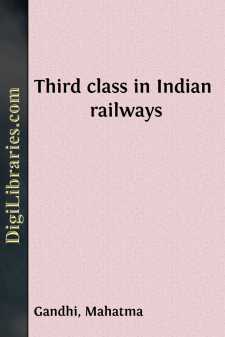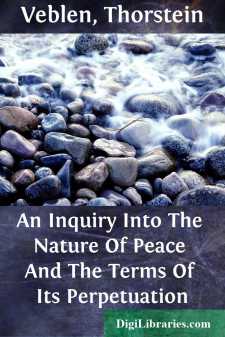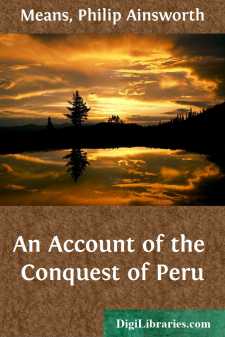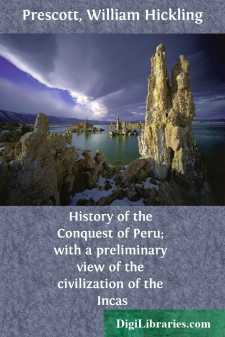History
- Africa 30
- Americas (North Central South West Indies) 50
- Ancient 68
- Asia 58
- Australia & New Zealand 8
- Canada 41
- Caribbean & West Indies 1
- Civilization 20
- Eastern Europe 12
- Europe 310
- Expeditions & Discoveries 60
- General 77
- Historical Geography 1
- Jewish 9
- Latin America 3
- Medieval 8
- Middle East 13
- Military 248
- Revolutionary 8
- Study & Teaching 5
- United States 353
- Western Europe 56
- World 13
History Books
Sort by:
by:
Bennet Burleigh
CHAPTER I. Introductory.—Review of Field. It is an easier and kindlier duty to set forth facts than to proclaim opinions and pronounce judgments. Before Tel-el-Kebir was fought in September 1882 and the Egyptian army beaten and disbanded, the insurrection headed by the Mahdi or False Prophet had begun. In the disrupted condition of affairs which succeeded Arabi Pasha's defeat by British arms the...
more...
THE VOYAGE OF THE GOLDEN HIND All through the sixteenth century the South Seas were regarded as a mysterious wonderworld, whence Spain drew unlimited wealth of gold and silver bullion, of pearls and precious stones. Spain had declared the Pacific 'a closed sea' to the rest of the world. But in 1567 it happened that Sir John Hawkins, an English mariner, was cruising in the Gulf of Mexico, when...
more...
by:
Mahatma Gandhi
THIRD CLASS IN INDIAN RAILWAYS I have now been in India for over two years and a half after my return from South Africa. Over one quarter of that time I have passed on the Indian trains travelling third class by choice. I have travelled up north as far as Lahore, down south up to Tranquebar, and from Karachi to Calcutta. Having resorted to third class travelling, among other reasons, for the purpose of...
more...
In recasting Paris and its Story for issue in the "Mediæval Towns Series," opportunity has been taken of revising the whole and of adding a Second Part, wherein we have essayed the office of cicerone. Obviously in so vast a range of study as that afforded by the city of Paris, compression and selection have been imperative: we have therefore limited our guidance to such routes and edifices as...
more...
Again war. Again sufferings, necessary to nobody, utterly uncalled for; again fraud; again the universal stupefaction and brutalization of men. Men who are separated from each other by thousands of miles, hundreds of thousands of such men (on the one hand—Buddhists, whose law forbids the killing, not only of men, but of animals; on the other hand—Christians, professing the law of brotherhood and...
more...
by:
Thorstein Veblen
CHAPTER I Introductory: On the State and its Relation to War and Peace To many thoughtful men ripe in worldly wisdom it is known of a verity that war belongs indefeasibly in the Order of Nature. Contention, with manslaughter, is indispensable in human intercourse, at the same time that it conduces to the increase and diffusion of the manly virtues. So likewise, the unspoiled youth of the race, in the...
more...
by:
John Pinkerton
In the days of Plato, imagination found its way, before the mariners, to a new world across the Atlantic, and fabled an Atlantis where America now stands. In the days of Francis Bacon, imagination of the English found its way to the great Southern Continent before the Portuguese or Dutch sailors had sight of it, and it was the home of those wise students of God and nature to whom Bacon gave his New...
more...
Chapter I. The Birth Of Pennsylvania In 1661, the year after Charles II was restored to the throne of England, William Penn was a seventeen-year-old student at Christ Church, Oxford. His father, a distinguished admiral in high favor at Court, had abandoned his erstwhile friends and had aided in restoring King Charlie to his own again. Young William was associating with the sons of the aristocracy and...
more...
CHAPTER I Concerning the great quantity of silver and gold which was brought from Cuzco, and of the portion thereof which was sent to H. M. the emperor as the royal fifth: How the imprisoned Cacique Atabalipa declared himself free of his promise which he had made to the Spaniards to fill a house with gold for ransom: And of the treason which the said Atabalipa meditated against the Spaniards, for which...
more...
The great nobles of Peru were allowed, like their sovereign, a plurality of wives. The people, generally, whether by law, or by necessity stronger than law, were more happily limited to one. Marriage was conducted in a manner that gave it quite as original a character as belonged to the other institutions of the country. On an appointed day of the year, all those of a marriageable age - which, having...
more...











